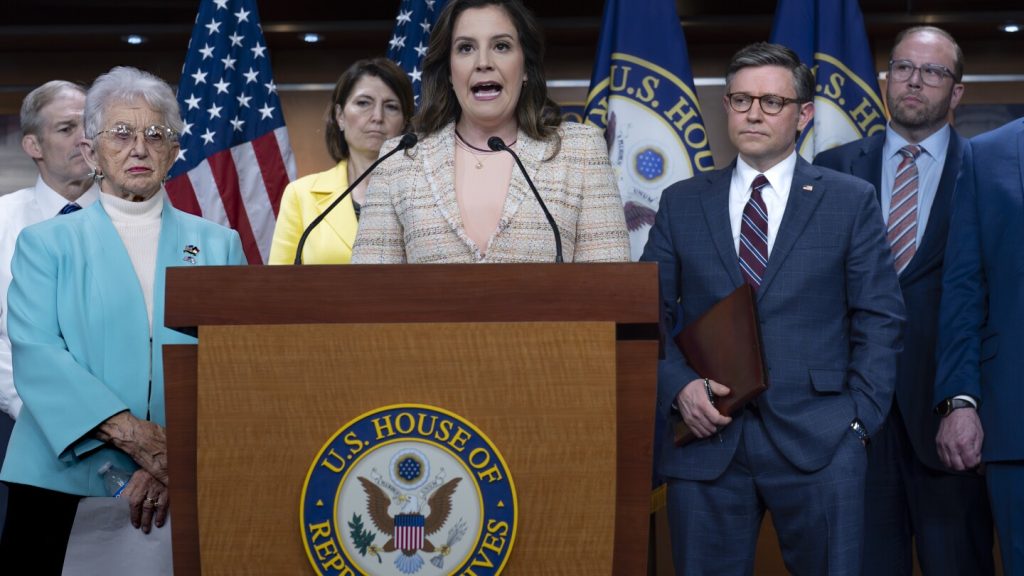Stefanik’s speech before Israel’s parliament comes at a time when tensions are high in the region due to the ongoing conflict between Israel and Hamas in Gaza. She criticized President Biden for his handling of the situation, specifically his decision to hold up the delivery of bombs to Israel and his refusal to provide offensive weapons for an Israeli invasion of Rafah. Stefanik, a strong supporter of Trump, is known for her stance on combatting antisemitism and ensuring support for Israel without conditions.
As the fourth highest-ranked Republican in the House of Representatives and a potential candidate for Trump’s running mate, Stefanik’s visit to Israel and her speech in the Knesset carry significance. She has previously taken a strong stance against antisemitism, as seen in her questioning of university presidents during a congressional hearing on the issue. The resignation of two university presidents following her grilling underscores the importance of combatting antisemitism both on campus and globally.
During her speech, Stefanik emphasized the importance of achieving “total victory” not only in physical self-defense but also in ideological self-defense. This aligns with Prime Minister Benjamin Netanyahu’s frequent assertion that Israel must achieve total victory in its war against Hamas. Stefanik’s vocal support for Israel and commitment to combatting antisemitism underscore her alignment with the Israeli government’s goals and priorities in the region.
Stefanik’s criticism of President Biden’s decisions regarding aid to Israel and sanctions on Iran reflects the broader political divides in the United States over the Middle East conflict. Her support for Trump and alignment with his policies suggest a continuation of the former president’s approach to the region, which prioritized support for Israel and a hardline stance against Iran. As a potential running mate for Trump, Stefanik’s visit to Israel and her speech in the Knesset may signal a shift in U.S. policy towards the conflict in Gaza.
The fact that Stefanik, a high-profile Republican leader, addressed the Israeli parliament on combatting antisemitism and supporting Israel highlights the bipartisan nature of U.S. support for Israel. While there may be disagreements over specific policies and decisions, both Republicans and Democrats in the U.S. Congress have historically shown strong support for Israel. Stefanik’s visit and speech serve to reinforce this support and emphasize the importance of combatting antisemitism on a global scale.
Overall, Stefanik’s visit to Israel and her speech in the Knesset demonstrate her commitment to combatting antisemitism, supporting Israel, and aligning with the priorities of the Israeli government. As a potential candidate for Trump’s running mate and a key Republican leader, her visit carries political significance and underscores the ongoing importance of the U.S.-Israel relationship. With tensions still high in the region, Stefanik’s vocal support for Israel and criticism of Biden’s policies highlight the complexities and challenges of the Middle East conflict.


